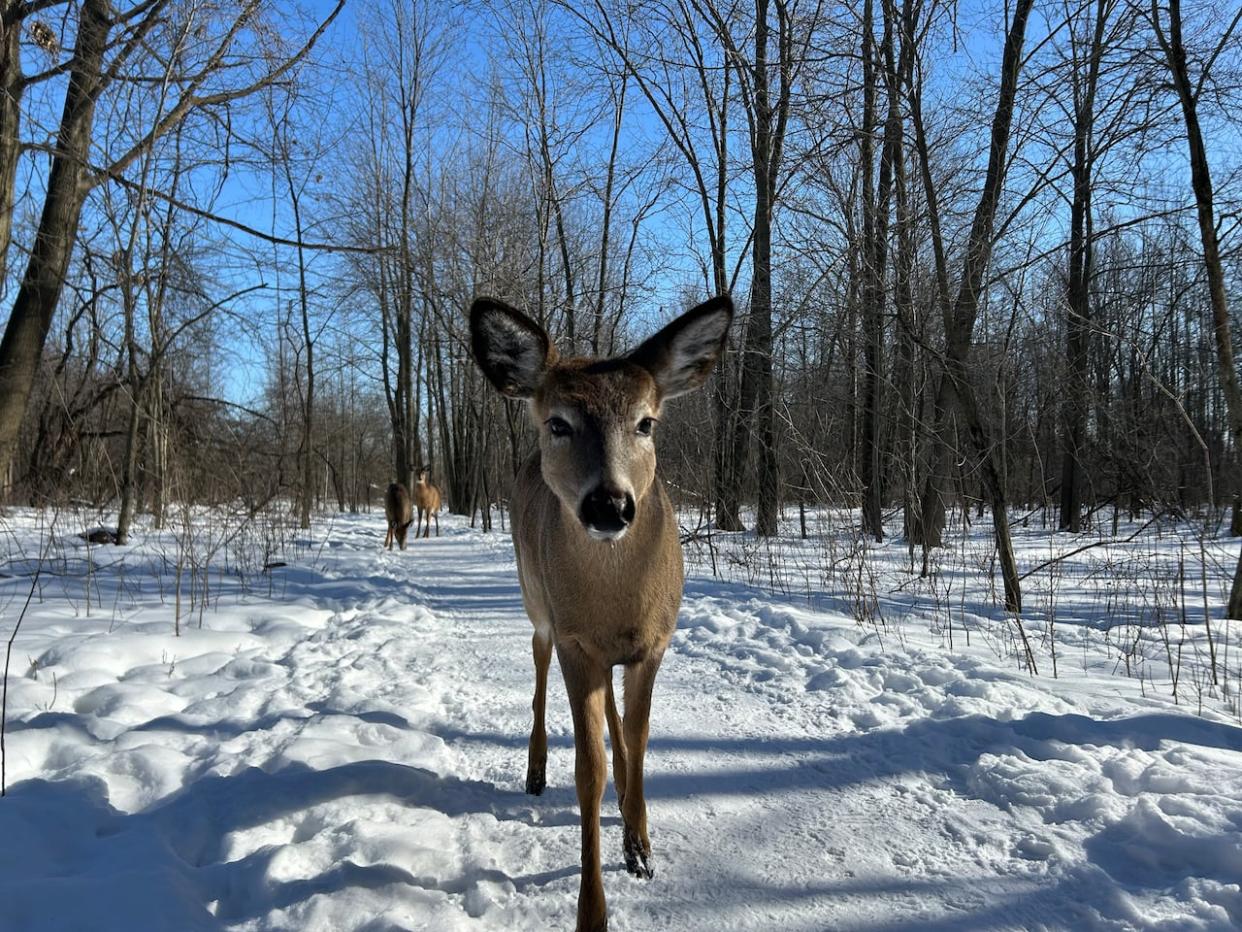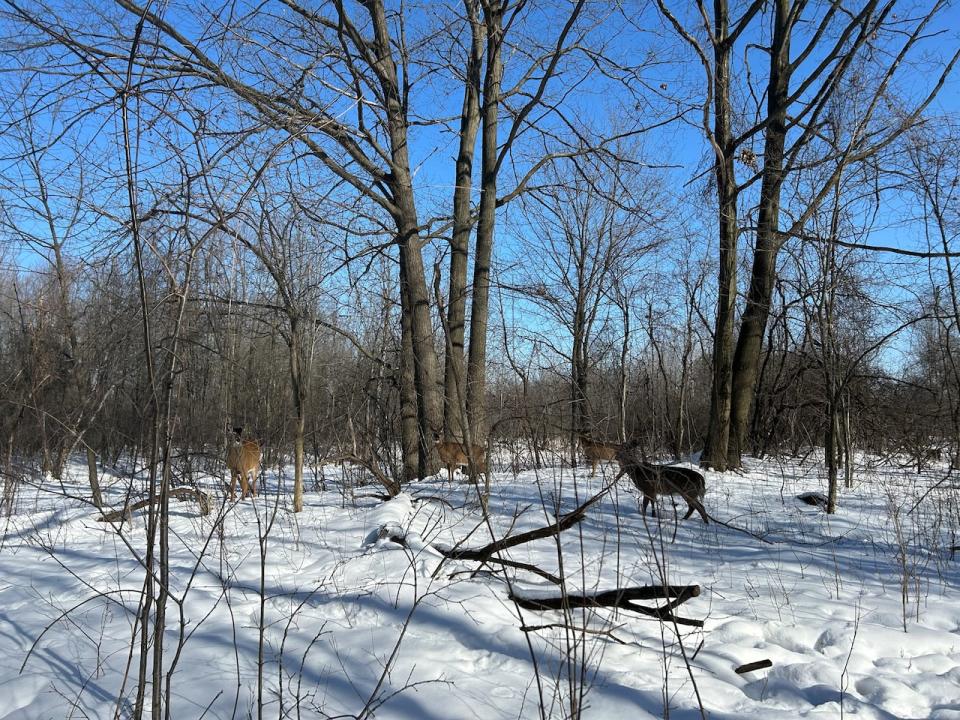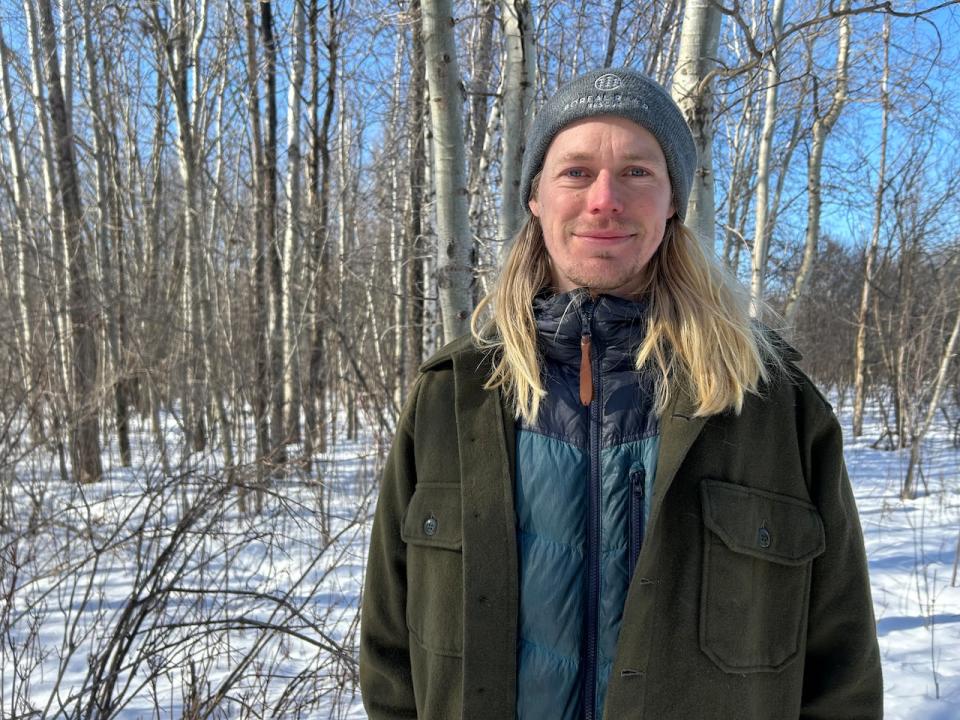Montreal's Opposition says it's time the city faced its east-end deer dilemma

The Plante administration is facing pressure to deal with the overpopulation of deer in the east island.
The Official Opposition at Montreal's city hall says the longer this drags on, the worse the problem gets.
"We have known for the last three years that this is a growing issue," said Stephanie Valenzuela of Ensemble Montréal.
Deer have taken shelter in Pointe-aux-Prairies nature park — a 261-hectare park on the eastern tip of the island. On Montreal's website, the white-tailed deer are touted as a sight to see there along with other mammals and birds. But too many deer in one area isn't necessarily a good thing.
The Opposition estimates that in 2022 there were 68 deer on the east end of the island. Now that number is close to 125.
Deer overpopulation in nature parks is not new to the region. Michel Chartrand park in Longueuil, Que., has been making headlines for years as protesters have been fighting like bucks in rut to stop the cull there.
However, a Quebec judge has ruled in favour of the city and Longueuil plans to cull about 100 deer, though a spokesperson for the city said the final number hasn't been determined yet.

Pointe-aux-Prairies nature park is a 261-hectare park on the eastern tip of the island with a growing population of white-tailed deer. (Rowan Kennedy/CBC)
According to Daniel Labonté, a spokesperson for Quebec's Ministry of Wildlife and Parks, warmer winters contribute to the increase in the deer populations. Hunting and the occasional cull help manage the populations.
Not including Anticosti island, which has a massive white-tailed deer population and looser hunting regulations, a total of 54,951 deer were harvested by hunters in Quebec in 2023, Labonté said.
Culls, like the one planned for Longueuil, aren't uncommon in Quebec as park managers, municipalities and the Quebec government work to control populations.
Late last year, for example, 399 white-tailed deer were killed in culls at two provincial parks, Îles-de-Boucherville and Mont-Saint-Bruno.
When deer populations are too big for a restricted space like nature parks, there is concern about ecological degradation to the point that the deer become malnourished and the forest eco-system suffers.
There are also concerns about ticks, as deer are a food source for the disease-carrying arachnids and more deer can mean more ticks.
Deer cause vehicle accidents as well. Each year, Quebec records an average of 7,100 road accidents related to large wildlife. The vast majority of those are white-tailed deer, according to the Ministry of Transport.
"People value the individual life of the animal, but in ecology we need to think of the health for the whole system," said Jesse Grindler, founder of Wise Oak Wilderness, which offers bushcraft and survival classes in Montreal.

Jesse Grindler, founder of Wise Oak Wilderness, says people get attached to deer as they are cute and charismatic creatures, but too many deer can be a problem for the environment. (Rowan Kennedy/CBC)
Montreal has erected fences to protect new vegetation in the Pointe-Aux-Prairies nature park. In 2021, it mandated an expert committee to study deer overpopulation across the island of Montreal.
Montreal Mayor Valérie Plante's office issued a statement, saying the city's objective is always to promote co-habitation and balance between fauna and flora.
"We closely monitor the population of white-tailed deer in Montreal east," it says.
The statement says the administration is awaiting recommendations from the committee of experts and the administration is evaluating all options.
"In the meantime, we remain proactive," the statement says. "We have been following developments in other Canadian municipalities with urban deer populations to learn from best practices."


